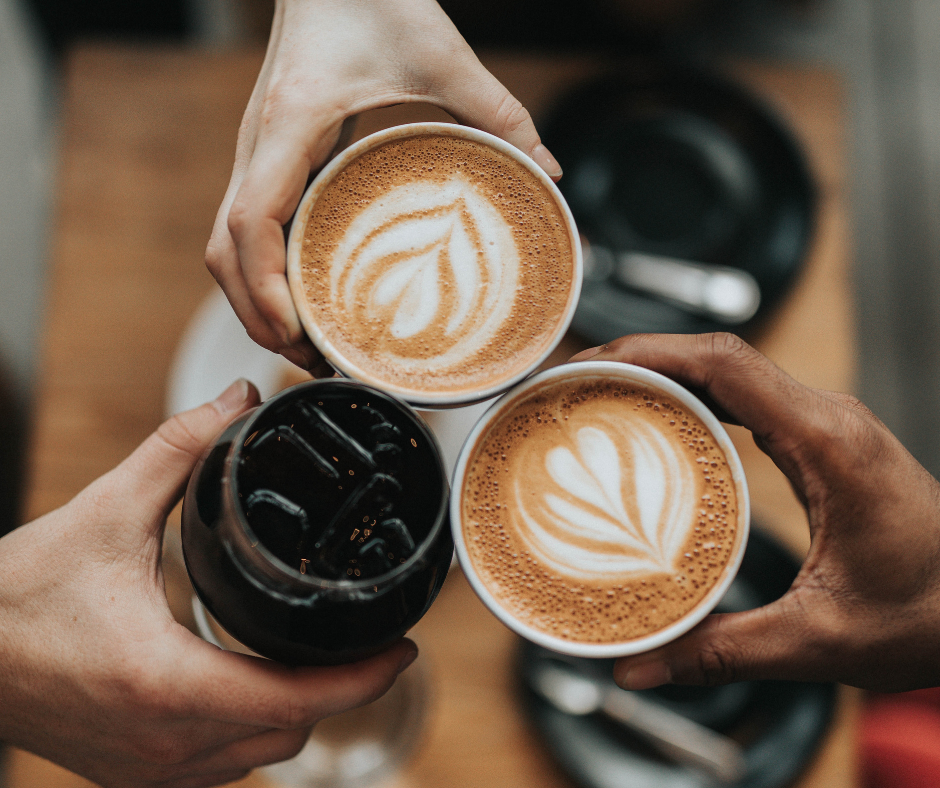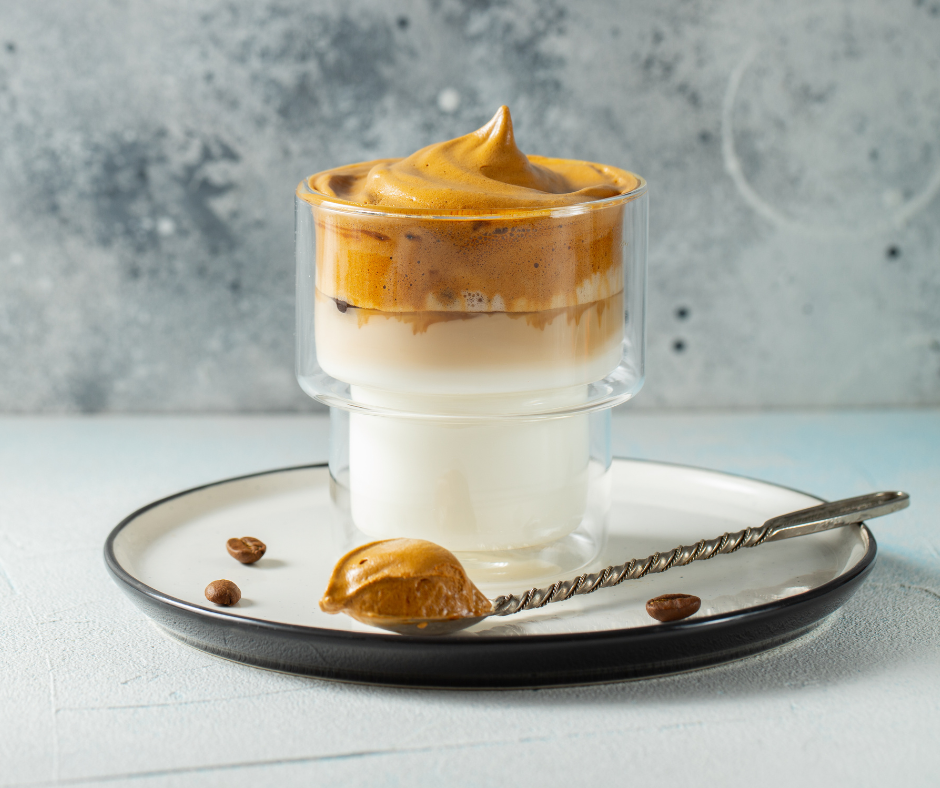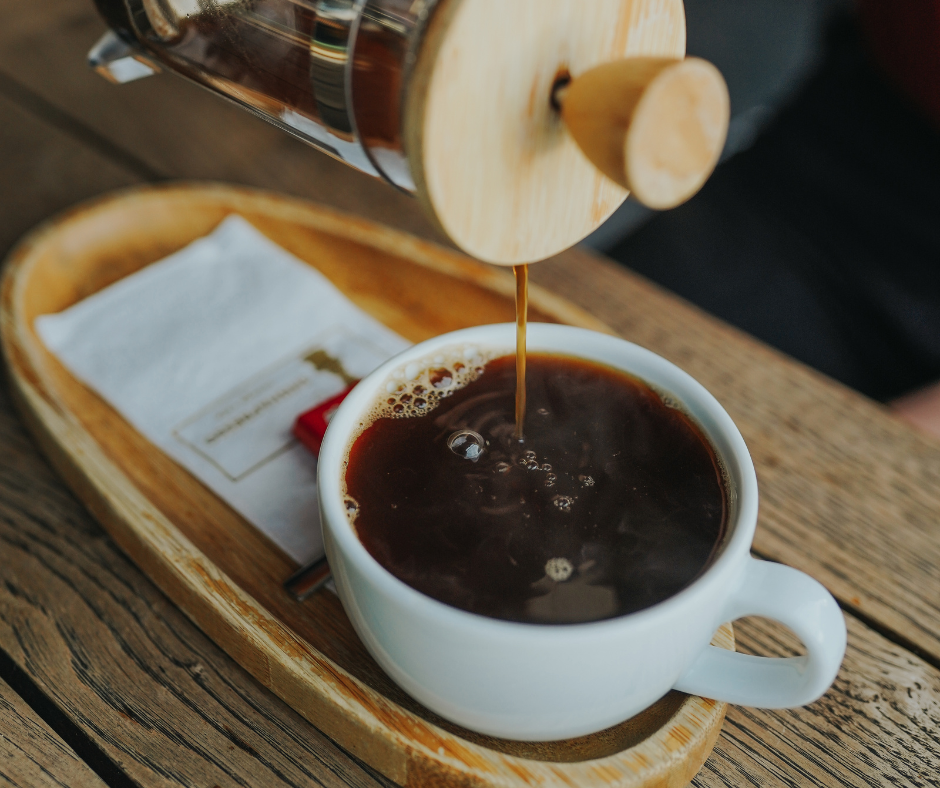Introduction
Are you a coffee lover who has recently started practicing intermittent fasting? You may wonder, ‘Can You Drink Coffee While Intermittent Fasting?‘. The good news is, you can! Let’s explore how you can navigate coffee consumption during intermittent fasting.
What Is Intermittent Fasting?
Intermittent fasting is an eating pattern that alternates between periods of fasting and eating. Typically, it involves fasting for a specific period, such as 16 hours, and then consuming all your daily calories within an eight-hour window. This approach has gained popularity due to its potential health benefits and weight loss support.
Benefits Of Intermittent Fasting
Intermittent fasting offers several potential benefits:
- Weight loss: By restricting your eating window, intermittent fasting can help reduce calorie intake and promote weight loss.
- Improved insulin sensitivity: Intermittent fasting has been shown to enhance insulin sensitivity, which may help regulate blood sugar levels and reduce the risk of type 2 diabetes.
- Reduced inflammation: Fasting has been associated with decreased inflammation markers in the body, which may contribute to improved overall health.
- Increased autophagy: Autophagy is the body’s natural process of cellular repair. Intermittent fasting has been found to stimulate autophagy, potentially promoting cellular rejuvenation and longevity.
Now, let’s address the question of coffee consumption during intermittent fasting.
Can You Drink Coffee While Intermittent Fasting?
The answer is generally yes, as long as you keep some guidelines in mind:
- Black coffee: Stick to black coffee without any added sweeteners or creamers. Any calories or sweeteners can break your fast and disrupt the benefits of fasting.
- Avoid flavored coffees: Flavored coffees often contain added sugars or artificial sweeteners, which should be avoided during fasting.
- Be mindful of caffeine: Excessive caffeine intake can increase cortisol levels and disrupt sleep, so be cautious if you’re sensitive to caffeine.
- Listen to your body: Some people may experience gastrointestinal discomfort or other side effects from coffee during fasting. Switching to herbal tea or plain water is best if this happens to you.
Remember, it’s crucial to prioritize hydration during fasting. Drinking enough water is essential for overall health and to stay properly hydrated.
In conclusion, enjoying a cup of black coffee is generally acceptable during intermittent fasting as long as you avoid adding sugars, creamers, or artificial sweeteners. Remember to listen to your body and make the best choices for you. Cheers to a successful intermittent fasting journey with your favorite cup of joe by your side!
The Role Of Coffee In Intermittent Fasting
Good news for coffee lovers! You can still enjoy your cup of joe while practicing intermittent fasting. Coffee can even enhance your fasting experience. However, there are a few things to consider before gulping down that morning brew.
Intermittent fasting involves alternating between periods of eating and fasting, and during the fasting period, you are expected to consume zero or very minimal calories. The good news is that black coffee is considered calorie-free, which means it won’t break your fast. However, it’s important to note that adding cream, milk, sugar, or other additives to your coffee will add calories and disrupt the fasting state.
What Types Of Coffee Are Allowed During Fasting?
Regarding coffee during intermittent fasting, it’s best to keep things simple. Stick to black coffee without any added sweeteners, cream, or milk. This ensures you’re not consuming additional calories that could break your fast. If the taste of black coffee is too strong for you, you can try experimenting with different types of coffee beans or brewing methods to find a flavor that suits your palate.
It’s worth mentioning that while coffee itself won’t break your fast, the effects of caffeine can vary from person to person. Some individuals may experience increased hunger or other side effects such as jitters or disrupted sleep patterns. If drinking coffee negatively impacts your fasting experience, you may reduce your caffeine intake or switch to decaf coffee.
In conclusion, coffee can be a part of your intermittent fasting routine if you drink it black, without added sugars or creamers. Listening to your body and being mindful of how coffee affects your fasting experience is important. Stay hydrated and enjoy your cup of coffee in moderation during your fasting window.
Coffee And Fasting: The Facts
Understanding The Impact Of Coffee On Fasting
Intermittent fasting has recently gained popularity as a method for weight loss and improved health. During the fasting period, it is common for individuals to wonder, ‘Can You Drink Coffee While Intermittent Fasting?’ Let’s delve into the impact of coffee on fasting and explore whether it breaks a fast.
Does Coffee Break A Fast?
The answer to this question depends on the goals and guidelines of your specific fasting regimen. Generally, consuming black coffee in moderation is unlikely to break a fast. Black coffee is calorie-free and contains minimal carbohydrates and protein, therefore not significantly impacting your body’s fasting state. Additionally, coffee can help suppress hunger and boost energy, making it a useful tool for individuals practicing intermittent fasting.
However, it is important to note that adding certain ingredients to your coffee can disrupt your fasting state. Cream, milk, sweeteners, and flavorings generally contain calories, which can break your fast by triggering an insulin response or interfering with autophagy – the cellular repair process that occurs during fasting. Therefore, to maximize the benefits of your fasting period, it is best to consume black coffee or opt for alternatives like herbal teas or water.
It is also worth mentioning that some individuals may be more sensitive to the effects of coffee on fasting than others. If you find that consuming coffee negatively affects your fasting experience, it may be best to avoid it altogether during your fasting periods.
In summary, in moderation, black coffee is unlikely to break a fast and can be incorporated into most fasting regimens. However, avoiding adding ingredients containing calories is essential, as they can disrupt the fasting state. As with any dietary question, it is advisable to consult with a healthcare professional or registered dietitian who can provide personalized guidance based on your specific needs and goals.
Overall, it is possible to enjoy your morning cup of coffee while adhering to intermittent fasting, as long as you do so mindfully and within the guidelines of your specific fasting protocol.
Maximizing The Benefits Of Coffee During Intermittent Fasting
Intermittent fasting has gained popularity for its potential health benefits, including weight loss, improved metabolism, and enhanced brain function. But what about coffee? Can You Drink Coffee While Intermittent Fasting? The answer is yes, but there are a few guidelines to make the most of your fasting routine.
Tips For Incorporating Coffee Into Your Fasting Routine
- Stick to black coffee: During your fasting window, consuming zero-calorie beverages is crucial to avoid breaking your fast. Black coffee is the perfect option as it contains no calories, sugar, or additives.
- Avoid sweeteners and creamers: While adding a splash of cream or a sweetener to your coffee may be tempting, these additions can spike your insulin levels and disrupt the benefits of fasting. Stick to drinking your coffee black for optimal results.
- Enjoy it in the morning: Coffee can help suppress hunger and boost energy levels, making it a great addition to your morning routine. Drinking coffee during your fasting window can help curb cravings and stay focused throughout the day.
How To Moderate Coffee Intake During Fasting?
- Limit caffeine consumption: While coffee can be beneficial during fasting, it’s essential to moderate your caffeine intake. Too much caffeine can lead to jitteriness, anxiety, and disrupted sleep patterns. Aim for no more than 2-3 cups of coffee per day to avoid these side effects.
- Be mindful of your body’s response: Some individuals may be more sensitive to the effects of caffeine than others. Pay attention to how your body reacts to coffee during fasting. If you experience discomfort or increased hunger after drinking coffee, reducing your intake may be best, or switching to decaf.
- Stay hydrated: Coffee is a diuretic that can increase urination and potentially contribute to dehydration. Drinking plenty of water throughout the day to stay hydrated is crucial, especially if you’re incorporating coffee into your fasting routine.
While coffee can be enjoyed during intermittent fasting, it’s important to remember that individual responses may vary. Some may find that coffee disrupts their fasting routine or causes adverse effects. It’s essential to listen to your body and make adjustments accordingly.
In conclusion, incorporating coffee into your intermittent fasting routine can have numerous benefits, including enhanced focus, increased mood, and suppressed appetite. By following the tips mentioned above and being mindful of your caffeine intake, you can maximize the advantages of coffee while fasting. However, it’s always a good idea to consult with a healthcare professional or nutritionist before significantly changing your diet or fasting routine.
Exploring Other Options
Coffee is essential to their morning routine for many people, providing that much-needed caffeine boost to kickstart the day. But if you’re following an intermittent fasting regimen, you might wonder if you can still enjoy your daily cup of joe. Let’s dive into coffee and intermittent fasting to determine if they coexist.
Alternatives To Coffee During Fasting
While black coffee is generally allowed during intermittent fasting, some may prefer to explore other options. Here are a few alternatives to consider:
- Herbal teas: Chamomile, peppermint, or ginger can be a great option during fasting. They are naturally caffeine-free and can provide a calming effect.
- Green tea: Green tea contains minimal calories and is known for its health benefits. It contains a moderate amount of caffeine, making it a suitable alternative to coffee for those who still want a little boost.
- Matcha: Matcha is a type of powdered green tea gaining popularity. It has a unique flavor that provides a sustained release of energy due to its combination of caffeine and other beneficial compounds.
Teas And Other Beverages Allowed During Fasting
Apart from coffee alternatives, there are a few other beverages that you can enjoy during fasting without breaking your fast:
- Water: Staying hydrated is crucial during fasting, so plain water should be your go-to choice. It has zero calories and keeps you refreshed.
- Black and herbal teas: As mentioned earlier, black tea is allowed during fasting. Additionally, herbal teas like chamomile, peppermint, or hibiscus are excellent options as they do not contain calories or interfere with your fast.
- Plain sparkling water: Opt for plain sparkling water if you crave carbonated beverages. It provides a fizzy sensation without any added sugars or calories.
When it comes to intermittent fasting, paying attention to the amount of cream, sugar, or other additives you add to your coffee or tea is essential. These additions can break your fast by triggering an insulin response. Consuming coffee with these extras during your eating window is advisable if you prefer coffee.
In conclusion, while you can technically drink coffee during intermittent fasting, exploring coffee alternatives or enjoying it in moderation without added sugars or cream might be a better option. Listen to your body and make choices that align with your fasting goals.
FAQ: Can You Drink Coffee While Intermittent Fasting?
Q: Can I drink coffee while intermittent fasting?
A: Yes, you can drink coffee while intermittent fasting. However, there are a few things to keep in mind.
Q: Is black coffee allowed during intermittent fasting?
A: Yes, black coffee is generally considered acceptable during fasting periods. Drinking it without any added ingredients, such as sugar or milk, is recommended.
Q: Can coffee break my fast?
A: Coffee alone is unlikely to break your fast. However, adding high-calorie or high-sugar additives to your coffee may hinder the benefits of fasting.
Q: What are the benefits of drinking coffee during intermittent fasting?
A: Research suggests that moderate amounts of black coffee during intermittent fasting can provide several benefits. These include improved brain function, reduced inflammation, decreased blood sugar issues, and heart disease risks.
Q: Can coffee help with weight loss during intermittent fasting?
A: While coffee alone may not directly contribute to weight loss, it may support your weight loss efforts by increasing energy, boosting metabolism, and reducing appetite.
Q: How much coffee can I drink during intermittent fasting?
A: Consuming a moderate amount of coffee during intermittent fasting is recommended. The exact amount may vary from person to person, but it is advisable to avoid excessive consumption.
Q: What should I avoid adding to my coffee while fasting?
A: To maintain the benefits of fasting, it is best to avoid adding sugar, milk, cream, or any other high-calorie additives to your coffee.
Q: Can coffee improve mental function during intermittent fasting?
A: Some studies suggest that coffee may help protect against age-related mental decline and improve brain health. However, more research is needed to fully understand the effects of coffee on mental function during fasting.
Conclusion
So, can you drink coffee while intermittent fasting? The answer is yes, but with some caution. Coffee can be a helpful tool to enhance your energy levels and mental focus during the fasting period. However, it’s important to be mindful of the potential drawbacks and consider how they may affect your fasting goals.
Finding The Balance: Coffee And Intermittent Fasting
Regarding intermittent fasting, it’s crucial to remember that the primary objective is to give your body a break from constant food intake. Coffee is calorie-free and doesn’t technically break your fast, but certain additions like cream, sugar, or milk can interfere with the fasting state. If you prefer to drink your coffee black, you can enjoy it during your fasting window without major concerns.
Recommendations For Incorporating Coffee Into Your Fasting Routine
Here are some tips to ensure you’re making the most out of your fasting experience while still enjoying your coffee:
- Stick to black coffee: To avoid breaking your fast, opt for black coffee without any sweeteners, cream, or milk. This will help you reap the potential benefits of intermittent fasting without the added calories.
- Timing is key: Plan your coffee consumption during the fasting window to maintain the effects of fasting. Remember that coffee can impact your body’s insulin response, so it’s best to enjoy it earlier in the day.
- Listen to your body: Pay attention to how your body responds to coffee during fasting. Some people may experience discomfort or digestive issues, while others may find it helps curb hunger and increases energy levels.
- Stay hydrated: Coffee is a diuretic, which can increase urine production and lead to dehydration. Make sure to balance your coffee intake with plenty of water to stay hydrated throughout the day.
In conclusion, while coffee can be a part of your intermittent fasting routine, it’s essential to approach it with mindfulness and moderation. Consider these recommendations and listen to your body to find the right balance between enjoying your coffee and achieving your fasting goals.

Deb Carlson at Crosslake Coffee: Join Deb at Crosslake Coffee for a delightful blend of community, caffeine, and creativity. Discover the cozy ambiance and warm hospitality that make this local coffee shop a beloved gathering spot. From expertly crafted espresso drinks to mouthwatering pastries, Deb invites you to savor every sip and bite. Stay connected with the latest updates on specials, events, and live music performances by following Deb Carlson at Crosslake Coffee on social media. Embrace the vibrant online community and share your love for great coffee and good company with fellow enthusiasts. Don’t miss out on a moment of the Crosslake Coffee experience – connect with Deb on social media today.



